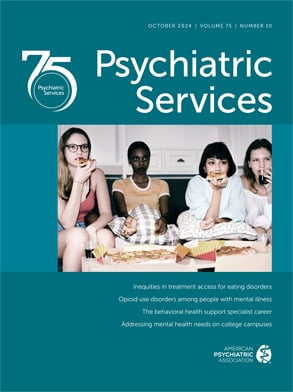I was eager for the opportunity to review this book as soon as I saw the title. It's been a long time since I have read anything thoughtful about therapeutic communities, which has seemed strange, given that I am impressed each day, in my work as a community psychiatrist, with the importance and clinical relevance of the patient's environment in his or her life.
To prepare myself to review From Toxic Institutions to Therapeutic Environments: Residential Settings in Mental Health Services, I performed a few on-line searches, through PubMed, using keywords such as "therapeutic community" and "residential treatment." It probably will not surprise readers that there has been little American research in this area in recent years, except for the substance abuse (MICA) field. The handful of articles I could find originated in the United Kingdom and were authored, for the most part, by the various contributors to this useful and provocative volume.
The book includes reviews of historical accomplishments and progress in the development of therapeutic communities; sociologic reflections on the relationship of persons to their physical and emotional environments; unapologetic, psychoanalytically oriented essays on group and community processes; and reviews of research and proposals for the future study of issues raised by these well-written, and occasionally poignant, essays.
The writing deals with a broad range of topics, covering both inpatient and community-based residential treatment, such as the physical environment and use of space, connecting with the natural environment, a gender-sensitive therapeutic environment for women, preventing and managing violence and aggression in inpatient settings, the residential care and treatment of adolescents, and measuring the therapeutic environment.
The book's contributors include very well-known researchers, such as Rudolf Moos of Stanford University and Steffan Davies of the University of Leicester, who is also one of the book's editors, as well as nurses and other health care professionals working in a variety of clinical settings. There are also two chapters written from the perspective of "users" (the British equivalent of "consumers").
The book principally uses clinical examples and models from health care programs in the United Kingdom but is no less interesting for American readers. In fact, readers will likely find this element stimulating because of the different perspectives and priorities evidenced in these clinicians' accounts of their work. It is also axiomatic that subjective experience is not so different in the two countries, especially when considering themes of alienation, helplessness, and institutional bias.
In the preface, the editors note that "the concepts of 'asylum' and 'sanctuary'—so obvious to laypeople—need to be rediscovered by mental health professionals." They assert, and demonstrate, that this topic is receiving renewed interest and support, at least in the United Kingdom. It is perhaps appropriate that this should be so in the country where the first, great asylums (
1), which promoted "moral treatment" in the 18th century, were founded. Let us hope the enthusiasm and insight, demonstrated in this very worthwhile book, travels "across the pond."

